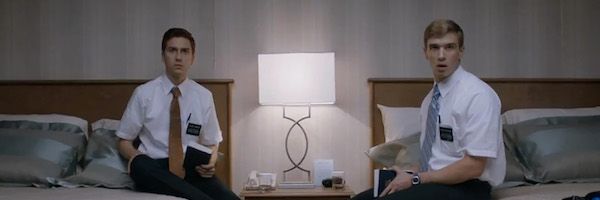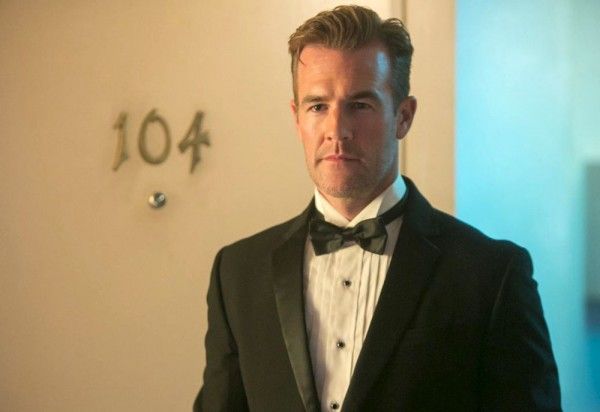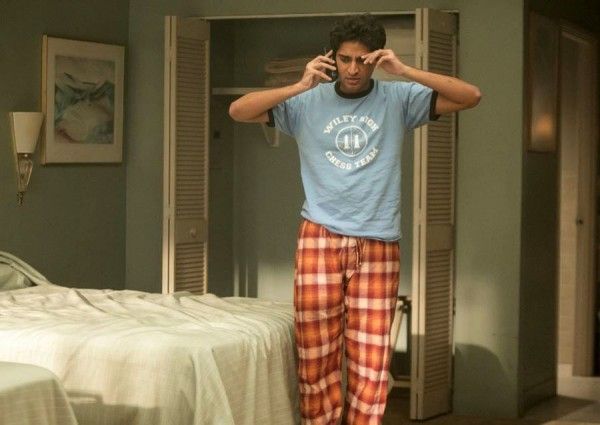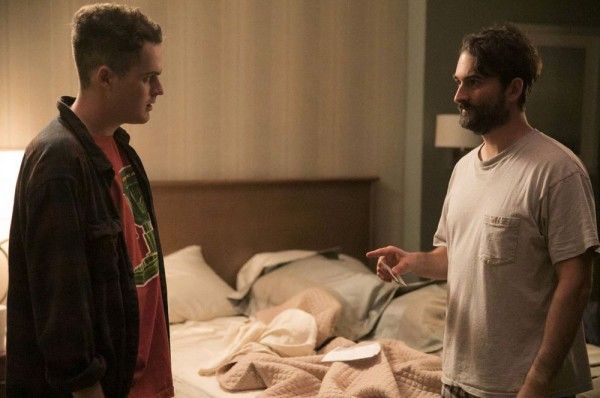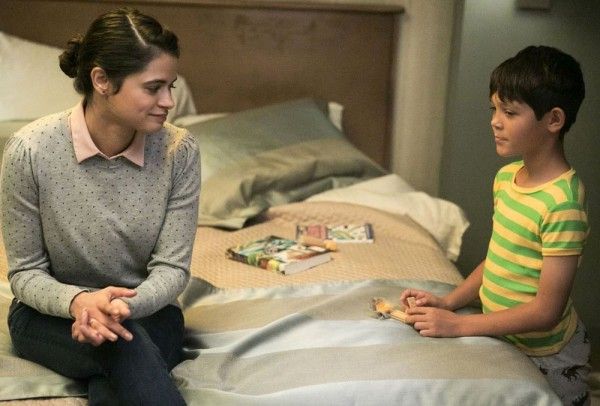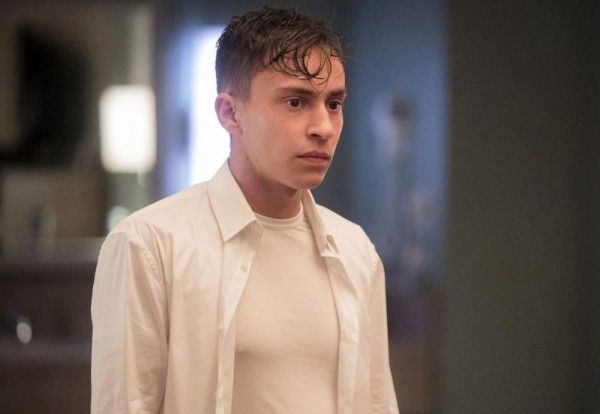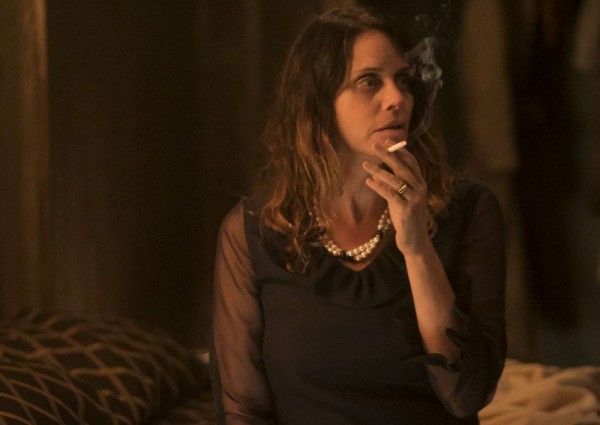From co-creators Jay and Mark Duplass, the HBO half-hour anthology series Room 104 tells a different story, with every episode having its own genre and tone, for each of the assorted characters who pass through a single room of an American chain motel. The 12 episodes range from comedy to drama to horror, as they tell tales of everyday people striving for connection and meaning.
While at the HBO portion of the Television Critics Association Press Tour, Collider had the opportunity to sit down with Mark Duplass to talk about what he and his brother wanted to get out of this series, when he thinks Room 104 is at its best, why he ended up writing so many of the episodes himself, designing the motel room, the rules they had to follow with each episode, getting new voices to direct, and where they see things going with the series, in the future.
Collider: This is such an interesting TV series, exploring various genres and utilizing new directing talent. Did you know exactly what you wanted to get out of this, when you started doing it?
MARK DUPLASS: Not totally. This was very much, at its core, chasing something that we hoped would be good, but we were unsure that we could make it good. We were very much out of our comfort zone, and there were a number of reasons for that. We don’t think we’re redefining television in any major way, but we’ve never seen a show where you don’t know the tone or genre of what you’re showing up for every week is going to be. That’s kind of a big ask for audiences, and that’s not lost on us, but that’s also exciting to us, too. We’ve been thinking a lot about curation in pop culture lately. You show up to Netflix and you’re looking for a movie to watch, but you can’t find your guide, or you’re trying to find new music that’s interesting and no one can really tell you what’s good. We were producing lots of different kinds of movies and we found that even though people liked Togetherness, they also liked Creep, this horror movie. We were like, “Is it possible that people would appreciate a Duplass Brothers Presents type of television show, where we offer them all the different kinds of stories we want to tell and surprise them in the Russian roulette of what tone or genre you mind get?” That might be interesting to people. We don’t know the answer to that yet, but that was exciting for us, and that’s where it all started.
I particularly enjoyed Episode 6, “Voyeurs,” and how that entire story was told through dance.
DUPLASS: I think the show at its best is when we’re taking big swings like that. I think it’s great that you connected to it, and I think it’s okay if a Creep fan who loved “Ralphie,” our horror episode, watches that one and is like, “This is stupid as shit! What’s the next one?!” We’re okay with that, too. You probably won’t like all 12 episodes, but that’s cool.
Did you know that you’d write so many of these episodes yourself?
DUPLASS: Yeah, we worked it out because the show is made so cheeply. It was a big ask of HBO to make this. We said, “You’ve gotta green light a whole season ‘cause we’ve gotta build the set.” We didn’t make a pilot, we just went right into it. So, we felt it would be nice to go in and show them, “Here are what six of the episodes look like,” as proof of concept. I don’t know if I will do that, or if Jay will do that, in seasons moving forward. Although, we have so many ideas and I loved writing them, so I probably will. But another interesting thing was that we didn’t direct any of the episodes this season, and that was a specific choice to expand our collaboration to all of these young filmmakers that we’ve been producing with. It was a very exciting marriage, where they would get a little bit of our mentorship and they would get their first chance to direct episodic TV, get an HBO credit, and maybe open up that side of their career. And they were so appreciative, inspired and overly prepared for it. I think the episodes really got better and more interesting than if Jay and I had just directed them ourselves and had done what we do. Also, it’s in the same room every time, so you want a different look and feel to shake it up. It was really organic to help give it variety.
Had you been thinking about any of these ideas for awhile, but just couldn’t find the right way to explore them?
DUPLASS: Some of them are dead movies, yes. Some of them were like, “This would be a great movie idea, but it’s not quite long enough to be a feature.” Some of them have been around for awhile, and we resurrected them, changed them and moved characters around. And some of them were birthed once we had 10 episodes and knew that we needed something to change the energy of the whole season. It’s like pacing a record with music, where you create things to make it a whole.
Are there any of the episodes where you’re most nervous about the reaction?
DUPLASS: I was nervous about “Voyeurs,” but it’s the one people love the most right now. It’s really cool that we’re getting a good response there.
How did you decide on the design of the room?
DUPLASS: We spent a lot of time on the design of that room. We wanted it all to just be very boring, banal and corporate, but that’s hard to look at for 12 episodes, so we designed it in ways that light could catch it in different ways. Our D.P., Doug Emmett, and our production designer, Jonah Markowitz, went crazy trying to get this room done in the right way, figuring out what absorbs light, what reflects it, and what colors can be changed through lightning. They did a really good job, and we owe a lot to them. We ordered a lot of the furniture from the same places that these chains order their shit from.
If you do more of these episodes, will they stay inside of the same motel room?
DUPLASS: We’ve talked about a lot of different ideas. The only thing we know is that there are more stories that we’re excited to tell inside of this room than we anticipated. We though it would come to a dead end pretty quickly because of the limits, but somehow those limits end up getting more expensive. We have artificial limits, as well. You only get three days to shoot an episode, you can only use a certain amount of actors and you can’t leave the motel room, ever. Those artificial limits inspire you to punch against them and break out. It’s hard to say, but I feel like we could make 10 seasons just inside of that room, if we wanted to.
How did you decide what directors you wanted to have direct these episodes?
DUPLASS: The good news is that we’ve been around film festivals and people for so long, it wasn’t like we had to reach very far. The only thing that we were thoughtful about was to make the decision to have at least half of our directors be female or persons of color, and the same went for representation in front of the camera. That’s easy for a show like this because, in an average hotel, all kinds of people come through. That just made organic sense to us. So, we would just line different directors up with a sensibility fit. For the episode I wrote for Jay (“I Knew You Weren’t Dead”), our friend, So-Yong Kim, who is a Sundance director that made this incredible movie called Lovesong that we loved, was excited to do it, to get a directing credit. A lot of it fell into place pretty organically. These days, we tend to believe that, if you just close your eyes and blindly grab at the nearest creative person to you, 90% of those people are going to be white males ‘cause of the way the industry is built, but it doesn’t require that much effort to look just one inch further, and if you do that, you’ll find a great mix.
Do you think you’ll bring back any of the same directors, if you do more episodes?
DUPLASS: I hope so! A lot of them, quite frankly, we’re already finding have been plucked and are going on to direct much bigger shows than Room 104, with bigger salaries, so we’ll see if they come back. If they don’t, that’s totally cool with us, too, ‘cause they gave us great stuff. We’ll just have the next generation of awesome Sundance filmmakers. That’s fine.
Did all of this feel as experimental, while you were making it, as it turned out to be?
DUPLASS: That’s a good question. I think somewhere in the writing process, when we had the outlines for the nine to 10 episodes of the 12 and we were like, “How do we fill this in?,” we realized that this thing was going to be kind of risky. That’s when we just leaned into it and took the leap of faith. We were like, “You know what? There are plenty of shows out there that tell you exactly the tone and genre that they are. There are plenty of shows out there that have wonderful serialized storytelling. Let’s just be our weird selves and own it, and see what happens.”
Room 104 airs on Friday nights on HBO.

